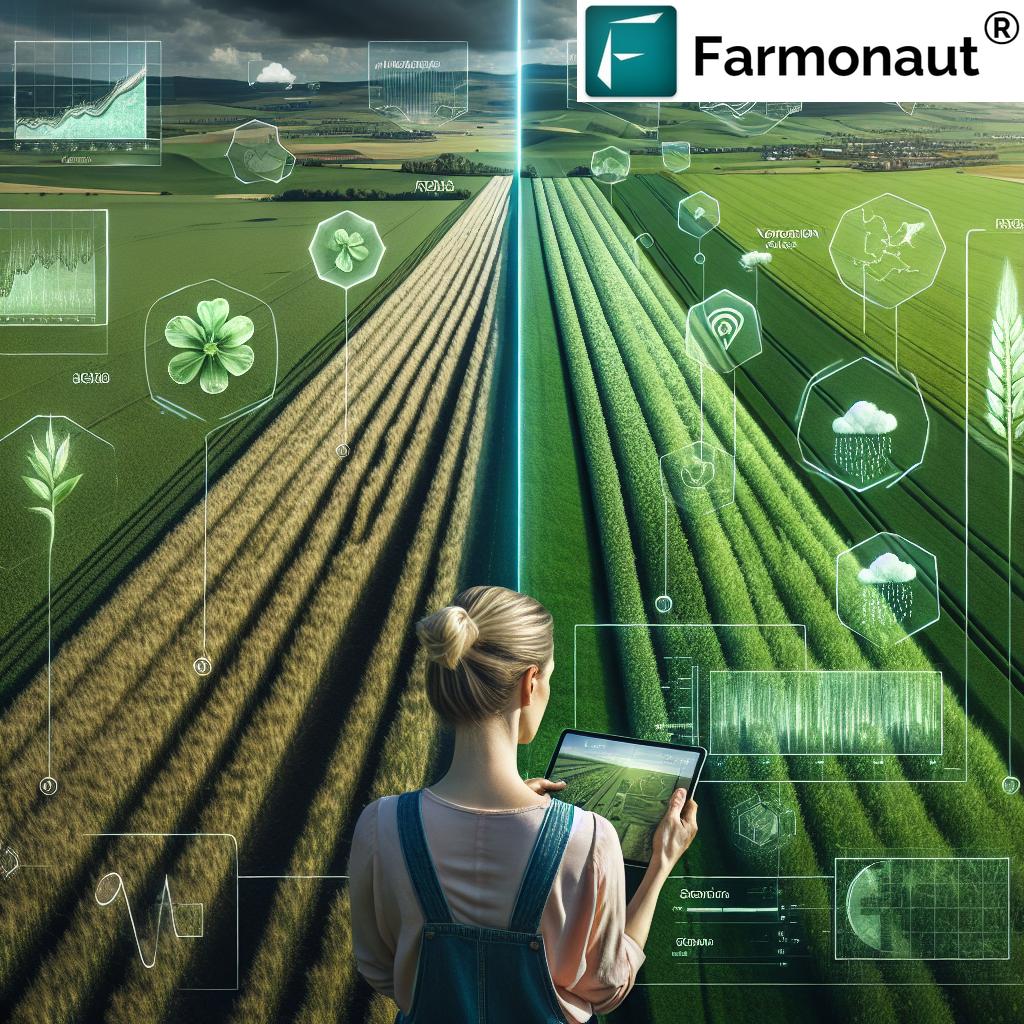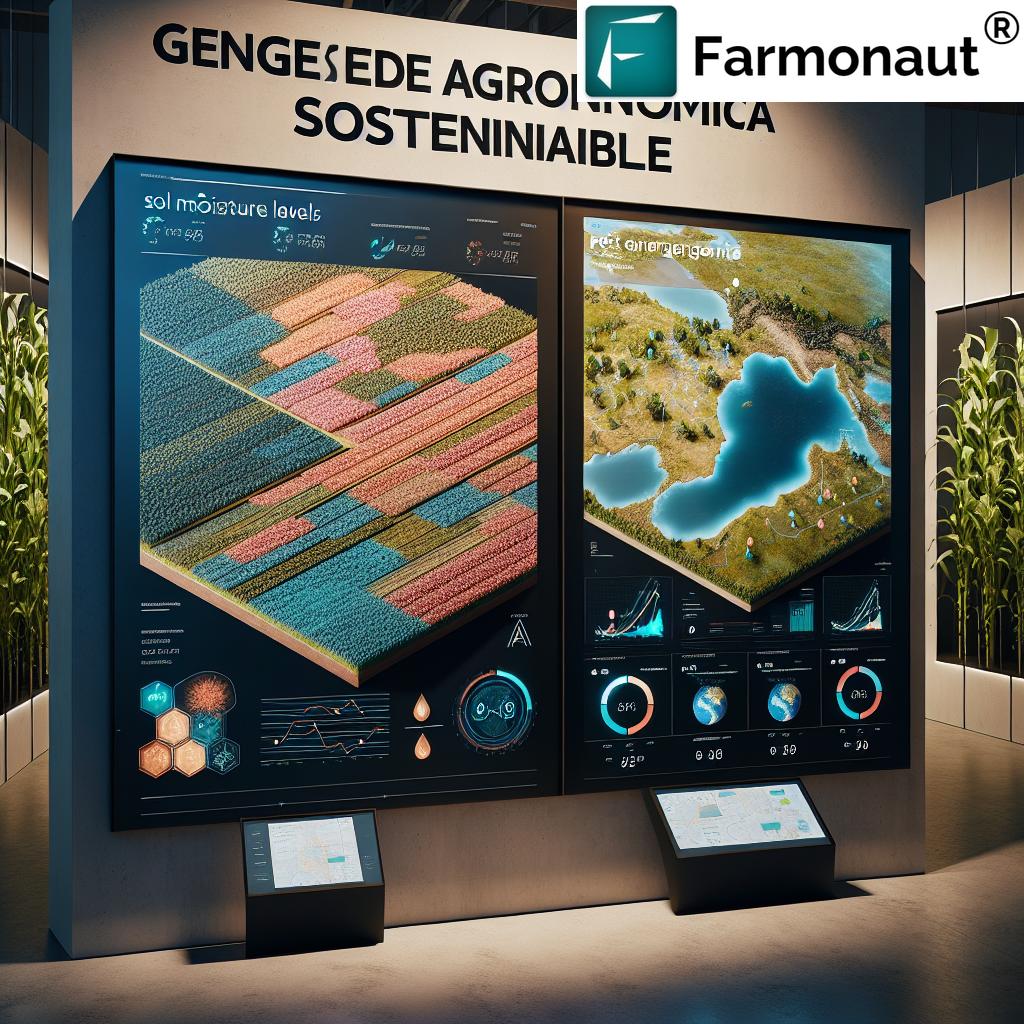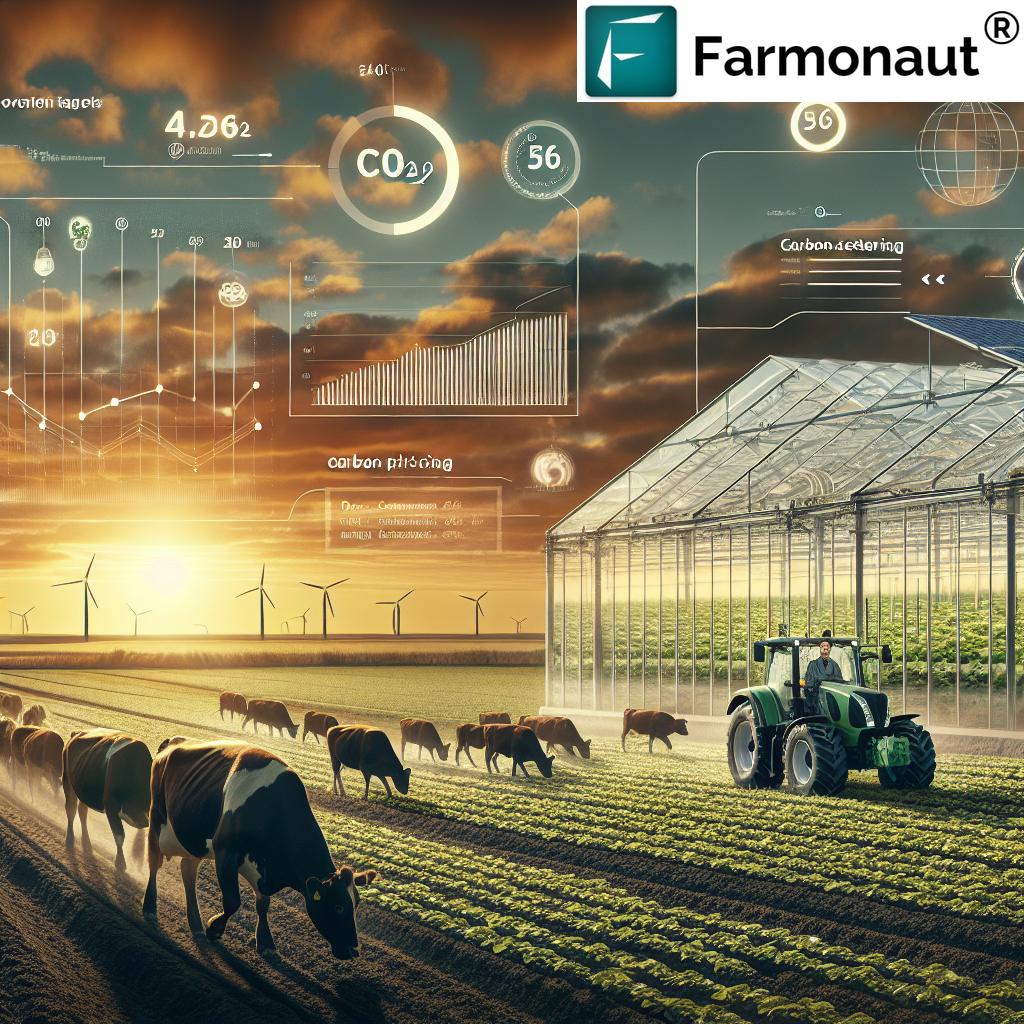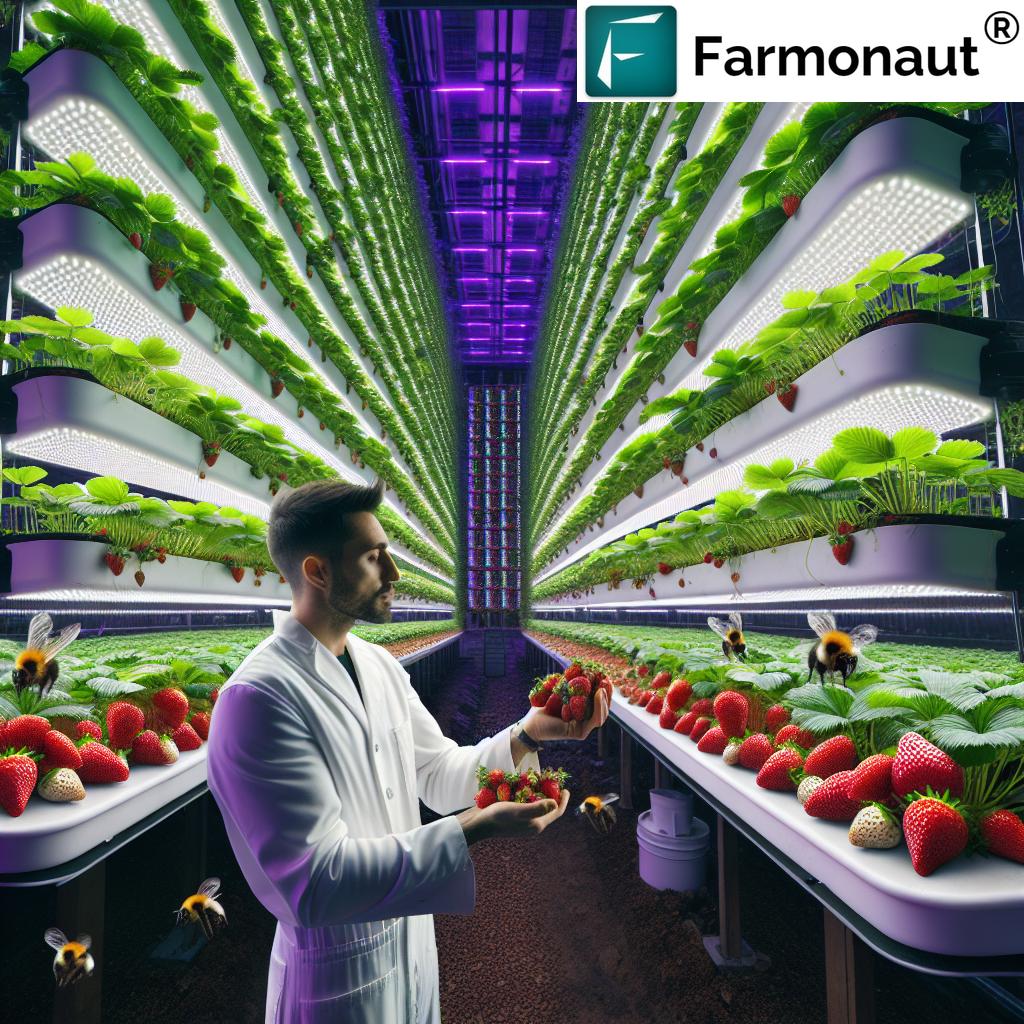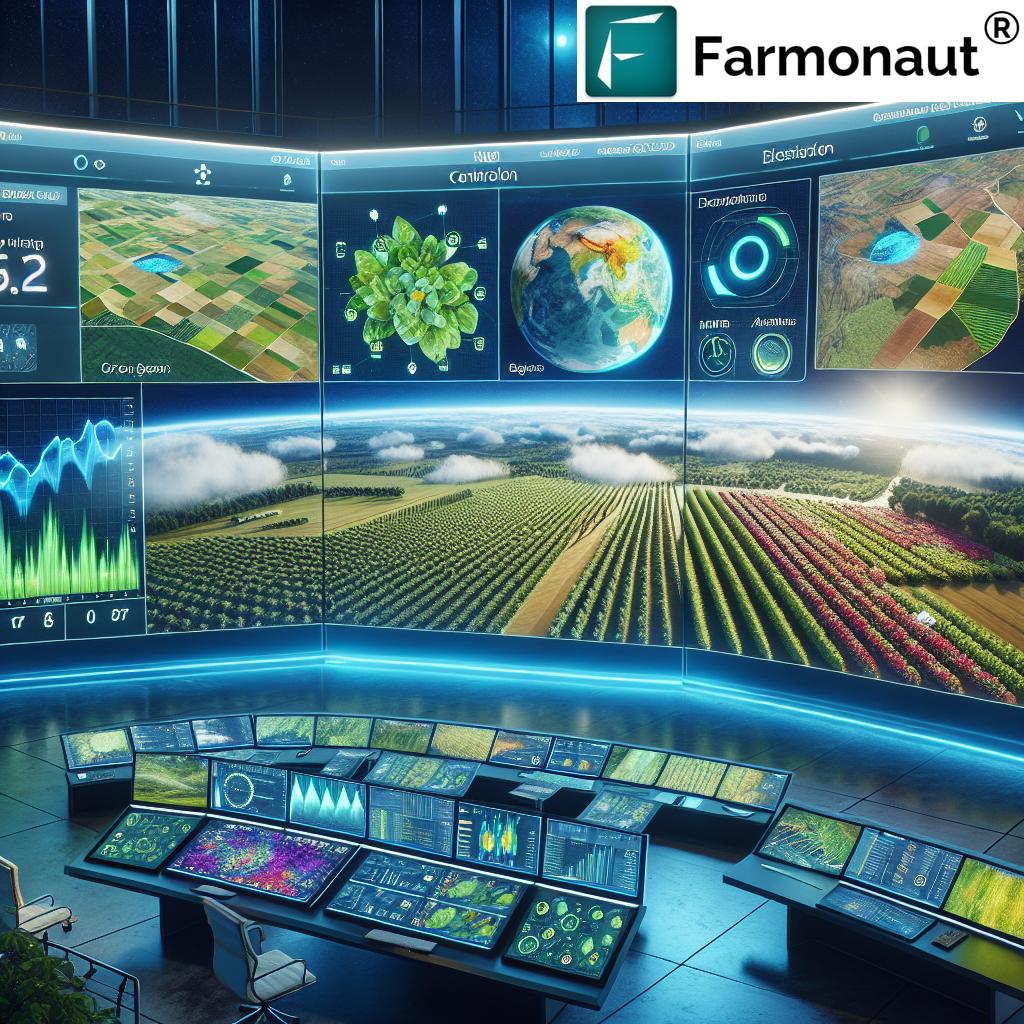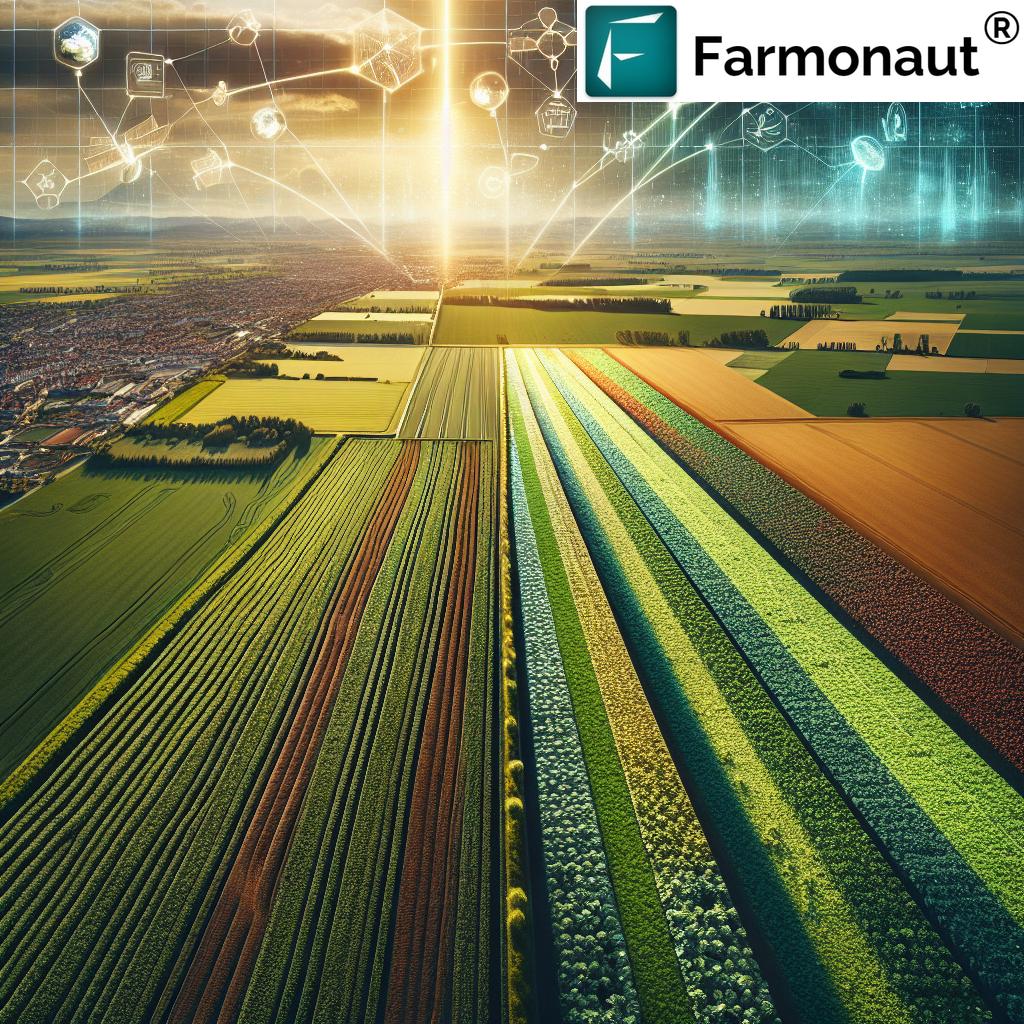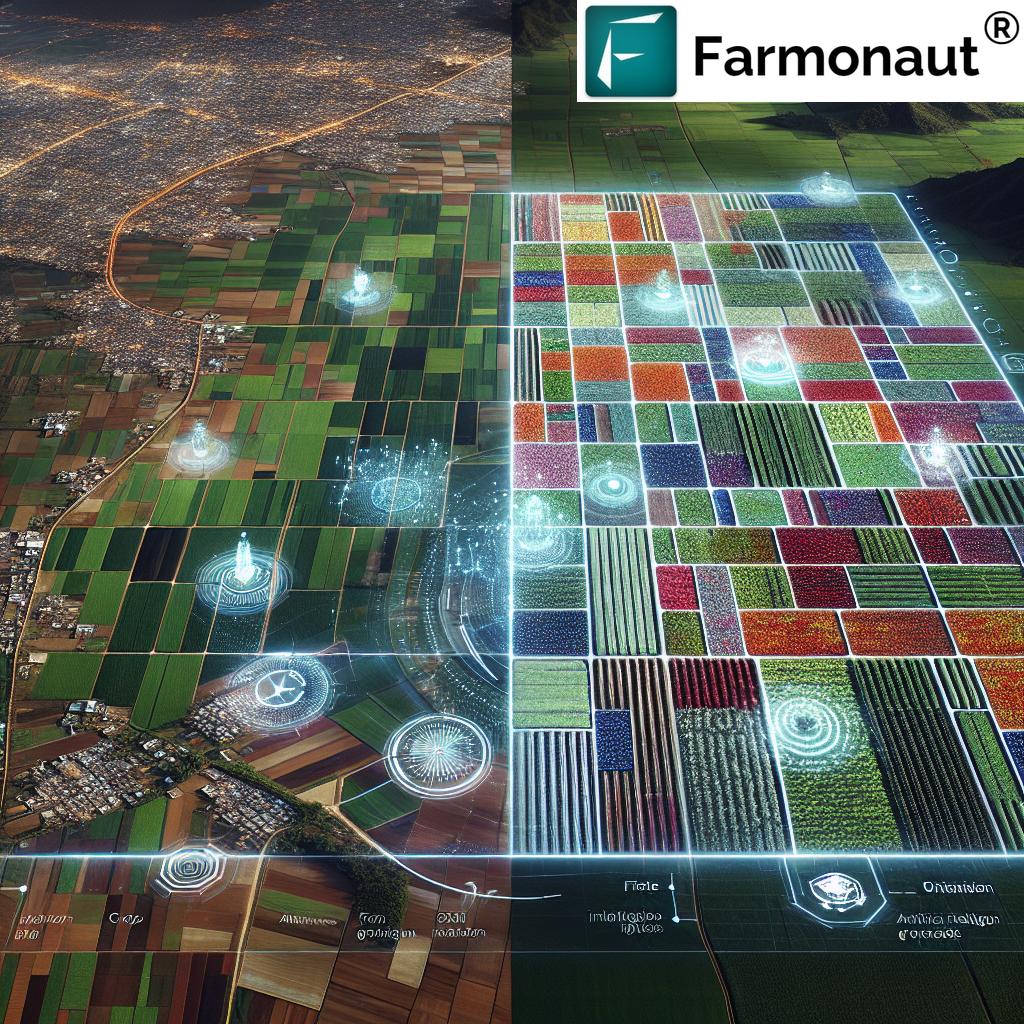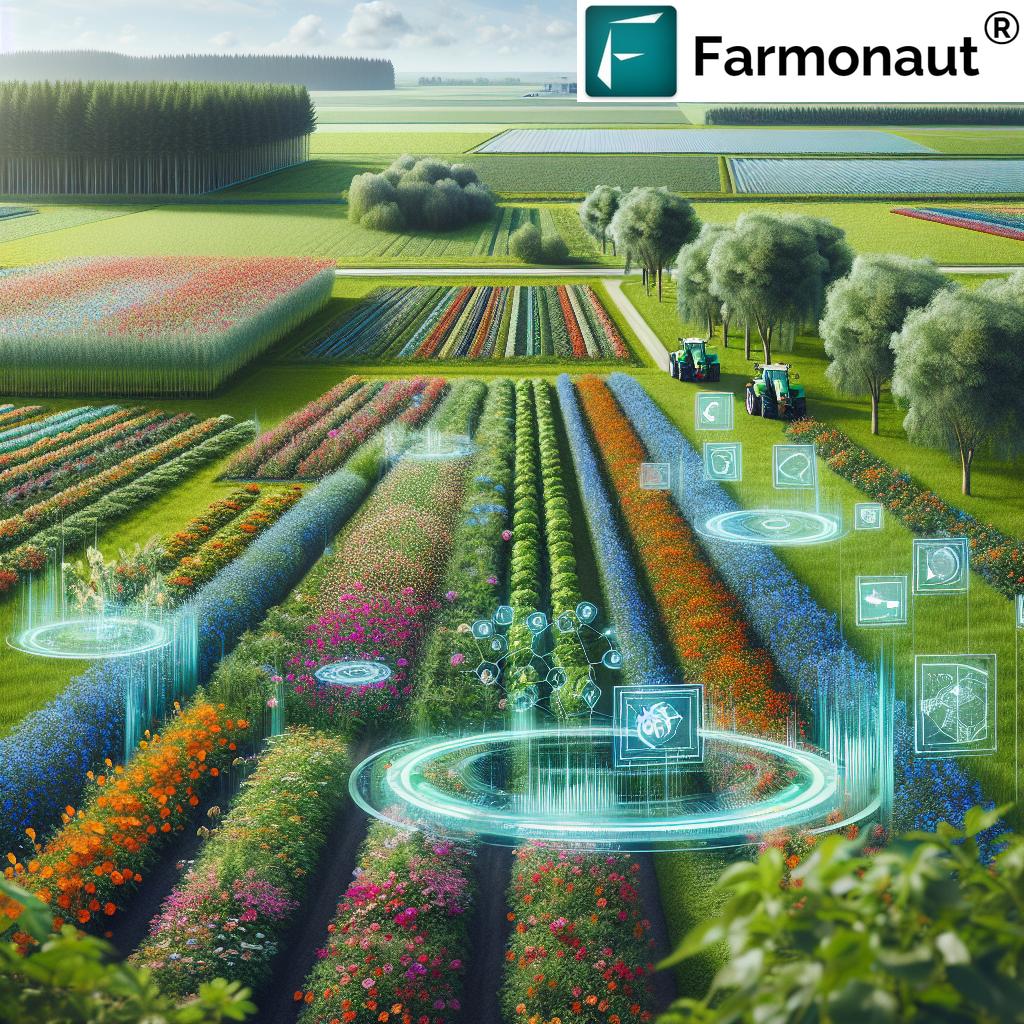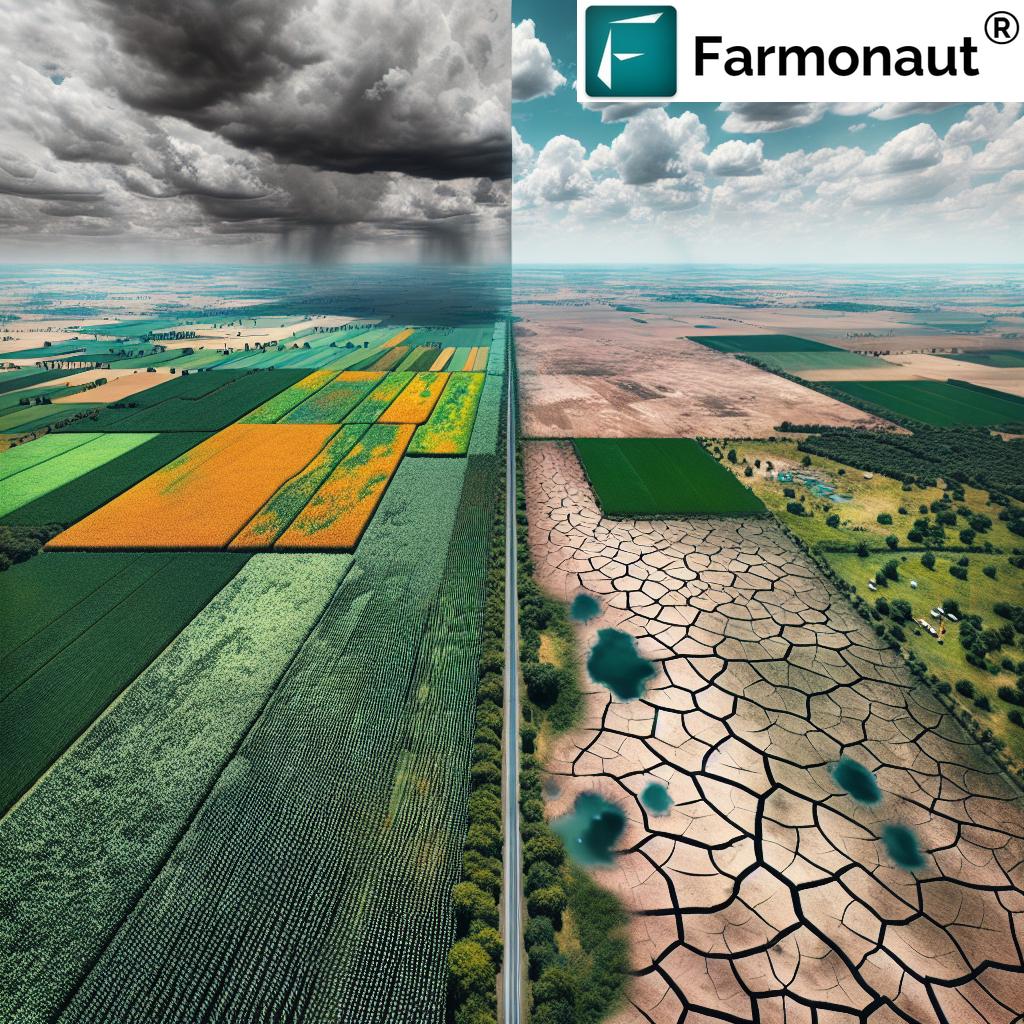2024 Global Fruit Processing Innovation: Technological Advancements Driving Agricultural Exports in Europe and Azerbaijan
“Global fruit processing innovation is driving a projected 15% increase in agricultural exports for 2024.”
Welcome to our comprehensive exploration of the exciting developments shaping the global fruit and vegetable processing industry in 2024. As we dive into the world of agricultural technology innovations, we’ll uncover how cutting-edge advancements are revolutionizing farming practices and propelling agricultural exports to new heights.
In this blog post, we’ll examine the latest trends in fruit processing machinery, vegetable processing solutions, and the expanding agritech market. From Europe to Asia, and with a special focus on countries like Azerbaijan and Uzbekistan, we’ll see how innovative technologies are transforming the agricultural landscape.
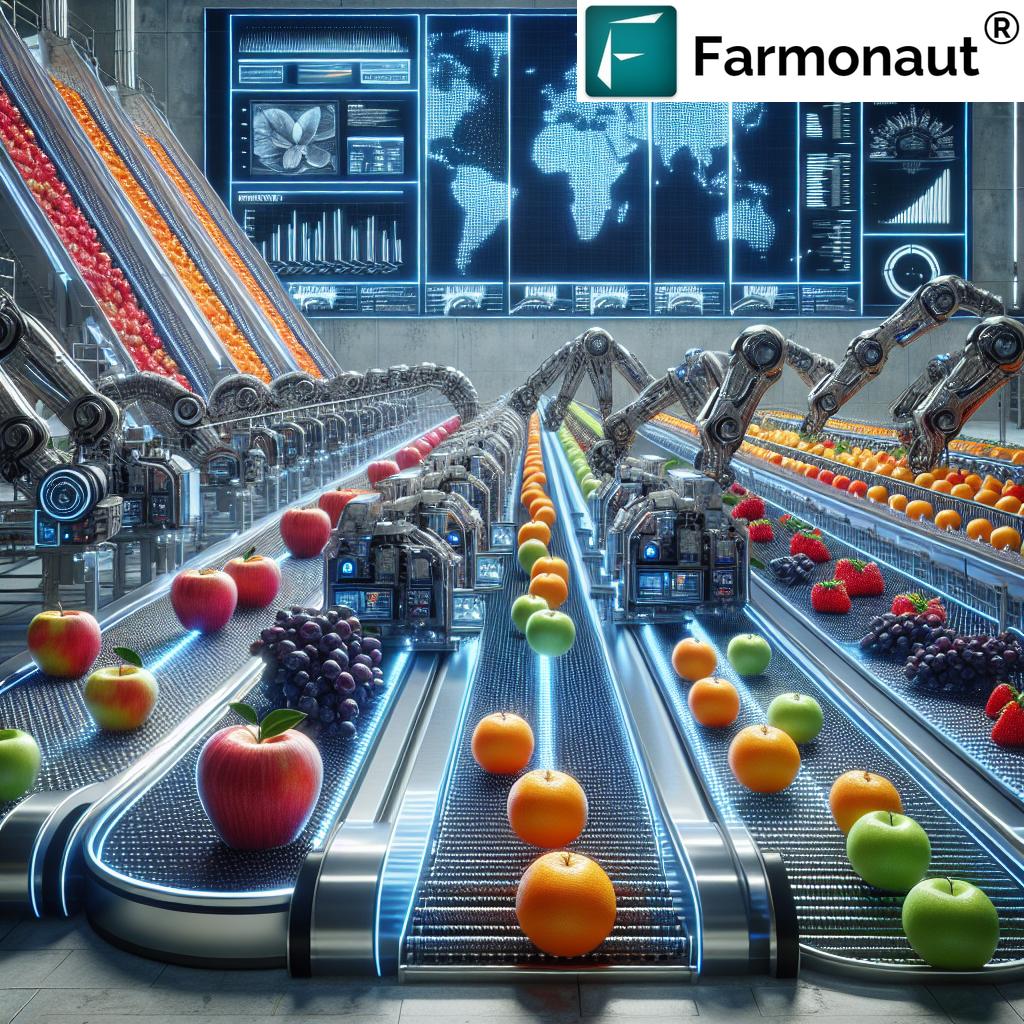
The Rise of Agricultural Technology Innovations
As we step into 2024, the agricultural sector is experiencing a technological renaissance. Fruit processing machinery and vegetable processing solutions are at the forefront of this revolution, driving remarkable growth in exports across the globe. Let’s explore some of the key innovations shaping the industry:
- Advanced Sorting Systems: AI-powered optical sorters can now detect even the slightest imperfections in fruits and vegetables, ensuring only the highest quality produce reaches consumers.
- Precision Cutting Technology: Laser-guided cutting machines are revolutionizing the way fruits are processed, minimizing waste and maximizing yield.
- Eco-Friendly Packaging Solutions: Biodegradable and smart packaging materials are extending shelf life while reducing environmental impact.
These advancements are not just improving efficiency; they’re also opening up new markets and opportunities for farmers and processors alike. As a result, we’re seeing a significant expansion in the agritech market globally.
Europe: A Hub of Agricultural Innovation
Europe has long been at the forefront of agricultural innovation, and 2024 is no exception. Countries across the continent are leveraging technology to boost their agricultural exports and maintain their competitive edge in the global market.
Spain: Leading the Charge in Citrus Processing
Spain, known for its excellent citrus fruits, has embraced cutting-edge technologies to enhance its fruit processing capabilities. Spanish companies are investing heavily in automated sorting and grading systems that use machine learning algorithms to identify and categorize fruits based on size, color, and quality. This technology has not only improved the consistency of their exported produce but has also significantly reduced labor costs.
Italy: Innovating in the Tomato Processing Sector
Italy, particularly the Emilia-Romagna region, is revolutionizing tomato processing. New ultrasonic cutting technologies are being employed to create perfectly diced tomatoes with minimal waste. Additionally, advanced thermal processing techniques are preserving the nutritional value and flavor of tomatoes better than ever before, leading to increased demand for Italian tomato products in international markets.
Azerbaijan: A Rising Star in Agricultural Exports
“Azerbaijan’s sustainable farming technologies have boosted stone fruit production by 20% in the past year.”
Azerbaijan is emerging as a significant player in the global fruit and vegetable trade, particularly in the export of stone fruits. The country’s adoption of sustainable farming technologies has led to a remarkable increase in production and export quality.
Stone Fruit Processing Equipment: A Game Changer
Azerbaijan has invested in state-of-the-art stone fruit processing equipment, including:
- Gentle Handling Systems: Specialized conveyors and washers that minimize bruising and damage to delicate fruits like peaches and apricots.
- Precision Pitting Machines: Advanced pitters that remove stones with incredible accuracy, preserving the fruit’s integrity.
- Flash Freezing Technology: Cutting-edge freezing systems that lock in flavor and nutrients, extending the export reach of Azerbaijani stone fruits.
These technological advancements have not only improved the quality of Azerbaijan’s fruit exports but have also opened up new markets in Europe and Asia.
Uzbekistan: Embracing Greenhouse Crop Management
Uzbekistan is making significant strides in greenhouse crop management, particularly for high-value crops like tomatoes and peppers. The country’s adoption of advanced greenhouse technologies is transforming its agricultural sector.
Smart Greenhouse Solutions
Uzbekistan’s greenhouses are now equipped with:
- IoT Sensors: Monitoring temperature, humidity, and CO2 levels in real-time.
- Automated Climate Control: Systems that adjust growing conditions automatically for optimal plant health.
- LED Lighting: Energy-efficient lighting solutions that can be tailored to specific crop needs.
These advancements have led to year-round production of high-quality vegetables, significantly boosting Uzbekistan’s export potential.
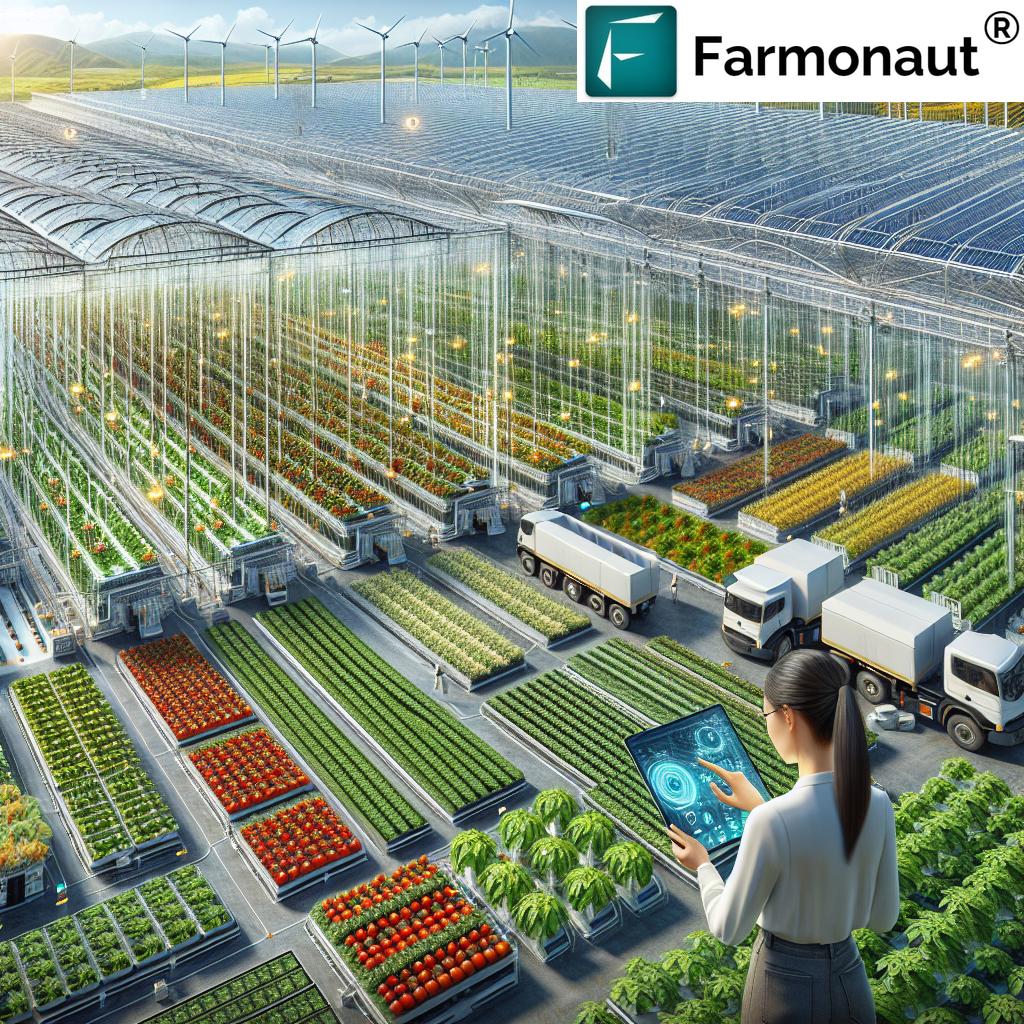
The Role of Precision Agriculture Software
Precision agriculture software is playing a crucial role in optimizing farming practices across the globe. These advanced tools are helping farmers make data-driven decisions, leading to improved crop yields and more sustainable farming practices.
At Farmonaut, we’re proud to contribute to this technological revolution with our innovative solutions. Our satellite-based farm management platform offers real-time crop health monitoring, AI-based advisory systems, and resource management tools. To explore how our technology can benefit your agricultural operations, visit our web app or download our mobile apps:
Global Fruit and Vegetable Trade: Trends and Challenges
The global fruit and vegetable trade is experiencing significant growth, driven by increasing demand for fresh and processed produce. However, this growth is not without its challenges.
Key Trends
- Increasing Demand for Organic Produce: Consumers are showing a growing preference for organically grown fruits and vegetables.
- Rise of Exotic Fruits: There’s a surging interest in exotic fruits, opening new export opportunities for tropical and subtropical countries.
- Value-Added Products: Processed fruit and vegetable products, such as dried fruits and vegetable powders, are gaining popularity.
Challenges
- Climate Change: Extreme weather events are affecting crop yields and quality in many regions.
- Water Scarcity: Many agricultural areas are facing water shortages, necessitating more efficient irrigation systems.
- Post-Harvest Losses: Reducing post-harvest losses remains a significant challenge, especially in developing countries.
Sustainable Farming Technologies: A Path to the Future
Sustainable farming technologies are becoming increasingly important as the agricultural sector faces environmental challenges. These technologies not only help in reducing the environmental impact of farming but also contribute to increased productivity and profitability.
Key Sustainable Farming Technologies
- Precision Irrigation Systems: Using sensors and AI to optimize water usage.
- Vertical Farming: Maximizing space and reducing water usage in urban environments.
- Biopesticides: Developing eco-friendly alternatives to chemical pesticides.
- Renewable Energy in Agriculture: Integrating solar and wind power into farming operations.
For farmers and agribusinesses looking to implement these sustainable technologies, Farmonaut offers valuable insights through our API. Our data can help in making informed decisions about resource management and sustainable practices. Developers can explore our API Developer Docs for more information.
The Impact of Innovation on Agricultural Exports
The adoption of innovative technologies in fruit and vegetable processing is having a profound impact on agricultural exports. Let’s take a closer look at how these innovations are driving growth across different regions:
| Region/Country | Key Fruit Export | Innovative Processing Technology | Estimated Export Growth (%) | Sustainability Impact Score (1-10) |
|---|---|---|---|---|
| Spain | Citrus | AI-powered sorting systems | 18% | 8 |
| Italy (Emilia-Romagna) | Tomatoes | Ultrasonic cutting technology | 15% | 7 |
| Azerbaijan | Stone fruits | Precision pitting machines | 20% | 9 |
| Uzbekistan | Greenhouse tomatoes and peppers | IoT-enabled smart greenhouses | 22% | 8 |
As we can see from the table, the implementation of innovative processing technologies is driving significant export growth across various regions. Moreover, these technologies are contributing to more sustainable farming practices, as reflected in the high sustainability impact scores.
The Role of Technology in Addressing Environmental Challenges
As the agricultural sector faces increasing environmental pressures, technology is playing a crucial role in mitigating these challenges. From water conservation to reducing carbon footprints, innovative solutions are helping farmers adapt to changing climatic conditions while maintaining productivity.
Climate-Smart Agriculture
Climate-smart agriculture (CSA) is an approach that helps guide actions to transform agricultural systems to effectively support development and ensure food security in a changing climate. Key technologies in this area include:
- Drought-Resistant Crop Varieties: Developed through advanced breeding techniques and genetic engineering.
- Weather Forecasting Systems: Providing farmers with accurate, localized weather predictions to inform planting and harvesting decisions.
- Carbon Sequestration Techniques: Implementing farming practices that help store carbon in the soil, reducing greenhouse gas emissions.
At Farmonaut, we’re committed to supporting climate-smart agriculture through our advanced satellite monitoring and AI-driven insights. Our platform helps farmers adapt to changing climate conditions by providing real-time data on crop health, soil moisture, and weather patterns.
The Future of Fruit and Vegetable Processing
As we look towards the future, several emerging technologies are set to further revolutionize fruit and vegetable processing:
Nanotechnology in Food Processing
Nanotechnology is opening up new possibilities in food processing, including:
- Nano-sensors: For detecting contaminants and ensuring food safety.
- Nano-encapsulation: To improve nutrient delivery and extend shelf life.
- Nano-emulsions: For creating healthier food products with reduced fat content.
3D Printing in Food Production
3D printing technology is being explored for various applications in fruit and vegetable processing:
- Customized Fruit Shapes: Creating unique, eye-catching fruit presentations for high-end markets.
- Textured Vegetable Products: Developing plant-based meat alternatives with improved texture and mouthfeel.
- Personalized Nutrition: Tailoring fruit and vegetable products to individual nutritional needs.
The Impact of Innovation on Different Fruit Sectors
Let’s take a closer look at how technological advancements are impacting specific fruit sectors:
Citrus Fruits
The citrus sector is benefiting from advanced sorting and grading technologies that can detect internal defects, ensuring only the highest quality fruits reach the market. Additionally, new processing techniques are allowing for the extraction of high-value compounds from citrus peels, creating new revenue streams for producers.
Bananas
Innovative ripening chambers with precise control over temperature, humidity, and ethylene levels are revolutionizing banana processing. These technologies allow for more consistent ripening and extended shelf life, reducing waste and improving export potential.
Grapes
In the grape industry, advanced optical sorting systems are improving the quality of both table grapes and wine grapes. For wine production, new fermentation monitoring technologies are helping winemakers optimize the fermentation process, leading to higher quality wines.
Melons
Non-destructive testing methods, such as acoustic resonance technology, are being used to determine the ripeness and internal quality of melons without cutting them open. This technology is particularly valuable for exporters, as it ensures that only perfectly ripe melons are shipped to distant markets.
The Role of Cooling and Packaging in Agricultural Exports
Proper cooling and packaging are crucial for maintaining the quality of fruits and vegetables during transportation, especially for long-distance exports. Innovative technologies in these areas are helping to extend shelf life and reduce post-harvest losses.
Advanced Cooling Technologies
- Vacuum Cooling: Rapidly removes field heat from leafy vegetables, extending shelf life.
- Hydro-cooling: Uses chilled water to quickly cool produce like cherries and asparagus.
- Controlled Atmosphere Storage: Regulates oxygen, carbon dioxide, and nitrogen levels to slow ripening.
Innovative Packaging Solutions
- Modified Atmosphere Packaging (MAP): Alters the composition of air surrounding the produce to slow respiration and extend shelf life.
- Active Packaging: Incorporates components that actively change the condition of the packaged food to extend shelf life or improve safety.
- Edible Coatings: Natural, edible substances applied to produce to create a protective barrier against moisture and gas exchange.
These advancements in cooling and packaging technologies are crucial for countries looking to expand their agricultural exports, especially for perishable fruits and vegetables.
The Importance of Traceability in Agricultural Exports
In today’s global market, traceability has become a crucial aspect of agricultural exports. Consumers and regulators alike are demanding more information about the origin and journey of their food. Blockchain technology is emerging as a powerful tool for ensuring transparency in the supply chain.
At Farmonaut, we recognize the importance of traceability in building consumer trust and meeting regulatory requirements. Our blockchain-based traceability solutions provide a secure and transparent way to track produce from farm to table. This technology not only enhances food safety but also adds value to agricultural exports by providing verifiable information about the product’s origin and journey.
Conclusion: Embracing Innovation for a Sustainable Future
As we’ve explored in this blog post, technological advancements are driving remarkable growth in fruit and vegetable exports across the globe. From Europe to Azerbaijan and beyond, countries are leveraging innovative processing technologies, sustainable farming practices, and advanced management systems to boost their agricultural sectors.
The future of agriculture lies in embracing these innovations while maintaining a focus on sustainability. By adopting technologies that improve efficiency, reduce waste, and enhance product quality, we can ensure a more resilient and productive agricultural sector capable of meeting the world’s growing food demands.
At Farmonaut, we’re committed to supporting this technological revolution in agriculture. Our satellite-based farm management solutions, AI-driven insights, and blockchain traceability tools are designed to help farmers, agribusinesses, and exporters thrive in this rapidly evolving landscape.
To learn more about how Farmonaut can support your agricultural operations, explore our subscription options below:
FAQ Section
Q: What are the main drivers of innovation in fruit processing?
A: The main drivers include increasing demand for high-quality produce, the need for extended shelf life, sustainability concerns, and the push for more efficient and cost-effective processing methods.
Q: How is technology improving agricultural exports?
A: Technology is improving agricultural exports by enhancing product quality, extending shelf life, ensuring food safety, improving traceability, and increasing overall efficiency in the supply chain.
Q: What role does sustainability play in modern fruit and vegetable processing?
A: Sustainability is crucial in modern processing, with a focus on reducing water usage, minimizing waste, using eco-friendly packaging, and implementing energy-efficient technologies.
Q: How is precision agriculture software benefiting farmers?
A: Precision agriculture software helps farmers make data-driven decisions, optimize resource use, improve crop yields, and reduce environmental impact through targeted interventions.
Q: What are the emerging trends in fruit and vegetable exports for 2024?
A: Key trends include the rise of organic and exotic fruits, increased demand for processed and value-added products, and the growing importance of traceability and sustainability certifications.
As we continue to witness rapid advancements in agricultural technology, the future of fruit and vegetable exports looks bright. By embracing innovation and sustainability, we can create a more resilient, productive, and environmentally friendly agricultural sector capable of meeting the challenges of the 21st century.




